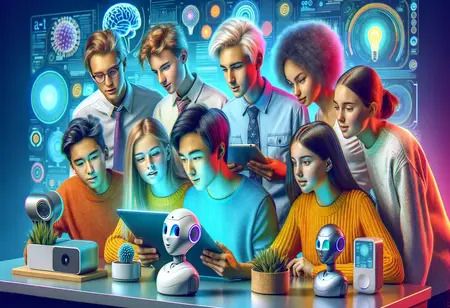
Australian Police Create AI Tool to Decipher Gen Z Slang


Reports indicate that police in Australia are developing an AI prototype designed to assist in understanding Gen Z slang and messages filled with emojis from online predators.
Australian Federal Police Commissioner Krissy Barrett stated that social media has turned into a hub for bullying, sexual exploitation, and radicalization.
Authorities were collaborating with tech powerhouse Microsoft to create a tool that would decode sinister communications concealed by seemingly harmless emojis and slang, she stated.
Intelligent AFP members, in collaboration with Microsoft, are creating a prototype AI tool to decode emojis and slang used by Gen Z and Alpha in secure messages.
"This prototype is designed to enable our teams to rescue children from danger more swiftly."
Barrett also cautioned regarding the emergence of "crimefluencers" — online predators who leverage their social media skills to prey on young and impressionable users.
Also Read: SCO Summit 2025: Outcomes of Modi-Xi Meeting
"They are crimefluencers driven by chaos and causing harm, predominantly targeting pre-teen or teenage girls," she stated.
Also Read: A Brief History of India's Transformation Under PM Narendra Modi
Starting December 10, Australia will require social media platforms like Facebook, Instagram, and TikTok to delete accounts of users younger than 16.
There is strong interest in whether Australia's extensive restrictions can be effective, as regulators worldwide grapple with the risks of social media.
Australian law enforcement officials have urged modifications to privacy laws that would enable them to utilize AI-driven facial recognition and decryption to more effectively identify victims and offenders of child sexual abuse material (CSAM).
Also Read: 5 Latest CHRO Appointments in Global Corporations
At the International Centre for Missing and Exploited Children (ICMEC) Australia’s first 'Safer AI for Children Summit' in Sydney on Tuesday, officials from federal and state police raised worries about privacy regulations and societal views hindering their ability to implement AI technologies.